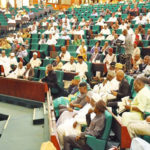
Minister of Education, Malam Adamu Adamu, who flagged off the framework in Abuja, said the era where expatriates were engaged to do almost all skilled labour in the country was over.
He said the Federal government would reposition and strategically place technical and vocational education and training (TVET) in proper perspective to ensure that the products of TVET institutions are able and available to perform their roles and meet the aspirations of the Nigerian economy.
Adamu, lamented millions of secondary and tertiary education graduates roam the streets of the country because of lack of skill to be self-employed or are unemployable.
“It is this skill gap that has helped Make Nigerian graduates non-competitive in the global marketplace, and in order to progress, Nigerians must produce the workforce that is skilled, efficient, highly mobile, adaptable and innovative,” he said.
He said the focus of the current administration of President Muhammadu Buhari, was job creation and youth empowerment, stressing that in line with the worldwide trend and demand for functional competence by the industries and employers, government would exploit TVET potential to reduce unemployment, poverty, incidence of social vices, improve the quality of life and promote peace and democracy in the country.
“It is, therefore, the desire of this administration to produce craftsmen, master craftsmen, technicians, technologists and professionals who do not only possess the required skills and competence but also thoroughly know and understanding of the complexities of the scientific and technological world,” he said.
The Minister said in institutionalizing the skills qualifications Framework, the ministry would prepare and pass the necessary legal framework to the Federal Executive Council for onward transmission to the National Assembly for enactment into law.
He pledged to identify the challenges facing TVET in Nigeria and develop ways of overcoming them while also ensuring that through the Office of the Head of Service of the Federation, qualifications from the NSQF are incorporated into the scheme of service of the federation.
He also awarded operational licences to some bodies and sector skills councils to kick-start the programme
Executive Secretary, National Board For Technical Education (NBTE), Dr Masa’udu Kazaure, whose agency developed the framework, said NSQF, was aimed at promoting lifelong learning and providing quality assurance and recognition for competence acquired in the formal, non-formal and informal sectors of the economy.
He said the board as a regulatory body also have the database of every registered candidate, qualified assessors, verifiers awarding bodies and other professionals working in the framework.
WATCH TOP VIDEOS FROM NIGERIAN TRIBUNE TV
- Let’s Talk About SELF-AWARENESS
- Is Your Confidence Mistaken for Pride? Let’s talk about it
- Is Etiquette About Perfection…Or Just Not Being Rude?
- Top Psychologist Reveal 3 Signs You’re Struggling With Imposter Syndrome
- Do You Pick Up Work-Related Calls at Midnight or Never? Let’s Talk About Boundaries







